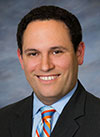
Sept. 6, 2023 – Twenty-five years ago – in
Morley-Murphy Co. v. Zenith Elecs. Corp. – the U.S. Court of Appeals for the Seventh Circuit warned in dicta that courts should not construe the Wisconsin Fair Dealership Law (WFDL) to authorize lost-profits damages arising from sales anticipated outside of Wisconsin, lest doing so raise constitutional concerns under the so-called dormant Commerce Clause.1
Some commentators and litigants have questioned the basis for this warning.2 Even though no state or federal court has ever fully adjudicated the issue, courts have continued to heed the
Morley-Murphy warning.3 However, the U.S. Supreme Court’s recent decision in
National Pork Producers Council v. Ross, 143 S. Ct. 1142 (2023), should trigger reconsideration. The
Ross decision clearly establishes the centrality of an antidiscrimination principle to dormant-Commerce-Clause doctrine:
[Petitioners] contend that our dormant Commerce Clause cases suggest an additional and almost
per se rule forbidding enforcement of state laws that have the practical effect of controlling commerce outside the State, even when those laws do not purposely discriminate against out-of-state economic interests. … A close look at those cases, however, reveals nothing like the rule petitioners posit. Instead, each typifies the familiar concern with preventing purposeful discrimination against out-of-state economic interests.4
Ross clarifies that, absent a showing of purposeful discrimination against out-of-state businesses, the dormant Commerce Clause should not prohibit enforcement of the WFDL, even beyond the borders of Wisconsin.
This article begins with a brief summary of the WFDL and the limited guidance
Morley-Murphy and other cases provide about applying the WFDL extraterritorially.
It then summarizes the
Ross decision’s analysis of dormant-Commerce-Clause doctrine. It concludes by reassessing in light of
Ross the viability of
Morley-Murphy’s warning that courts should limit the reach of the WFDL
Morley-Murphy Suggested a Limitation on the Reach of the WFDL
The Wisconsin Fair Dealership Law applies only to dealerships “situated in” Wisconsin.5 When such a relationship authorizes the dealer to sell or distribute goods or services in a territory wholly within Wisconsin’s borders, that is one thing.
 Jeffrey A. Mandell is a partner in
Stafford Rosenbaum LLP’s Madison office, where he co-leads the Dealership and Franchise practice group, as well as the Election and Political Law practice group.
Jeffrey A. Mandell is a partner in
Stafford Rosenbaum LLP’s Madison office, where he co-leads the Dealership and Franchise practice group, as well as the Election and Political Law practice group.
 Isaac S. Brodkey is a senior associate in
Stafford Rosenbaum LLP’s Madison office; his practice focuses on dealership and franchise issues.
Isaac S. Brodkey is a senior associate in
Stafford Rosenbaum LLP’s Madison office; his practice focuses on dealership and franchise issues.
Law clerk
Stephen C. Goettsche assisted with researching and writing this article.
But in frequent cases where a dealership situated in Wisconsin authorizes the dealer to sell or distribute goods or services in a territory that exceeds Wisconsin’s borders – whether it includes additional states or parts of states, or even extends to the entire nation or continent – matters get more complicated.
Morley-Murphy Co. had a Wisconsin-situated dealership that sold Zenith television sets not only in Wisconsin, but also in Iowa, Minnesota, North Dakota, South Dakota, and the Upper Peninsula of Michigan.6
When Zenith decided to overhaul its distribution system, Morley-Murphy sued under the WFDL, and the jury awarded damages for Morley-Murphy’s out-of-pocket expenses, lost future profits on projected sales from Morley-Murphy’s Wisconsin locations, and lost future profits on projected sales from Morley-Murphy’s Iowa and Minnesota locations.7
On appeal, the Seventh Circuit vacated the jury verdict and remanded for further proceedings. In doing so, it asserted that allowing the WFDL to reach beyond the borders of Wisconsin would “raise significant questions under the Commerce Clause.”8
Although the court stated that the dormant Commerce Clause “denies the States the power to unjustifiably discriminate against or burden the interstate flow of articles of commerce,” it made no determination that the WFDL actually discriminates against or burdens interstate commerce.9
Instead, the court speculated that the Wisconsin Supreme Court would construe the WFDL not to apply outside of Wisconsin because of the “presumption against extraterritoriality and the troublesome nature of the constitutional questions” that would arise if the WFDL reached into other states.10 The Seventh Circuit ruled that, on remand, Morley-Murphy could not “make a claim based on the WFDL” to recover “lost profits arising out of the termination of its out-of-state dealerships.”11
For its part, the Wisconsin Supreme Court has not addressed the constitutionality of applying the WFDL extraterritorially in multi-state dealership cases.
In
Baldewein Co. v. Tri-Clover, Inc., the Wisconsin Supreme Court answered a certified question from the Seventh Circuit on how courts should determine whether a dealership is “situated in” Wisconsin for purposes of the WFDL.12
The
Baldewein Court acknowledged the Seventh Circuit’s assertion that awarding damages for out-of-state sales would raise significant questions under the Commerce Clause,13 but did not address the constitutional question because it was not directly raised in the certification.14 No court since has adjudicated the issue.
Ross Clarifies that Antidiscrimination is the Touchstone
In
Ross, the U.S. Supreme Court affirmed the constitutionality of California Proposition 12, which “forbids the in-state sale of whole pork meat that comes from breeding pigs (or their immediate offspring) that are ‘confined in a cruel manner.’”15
The petitioners in
Ross based their constitutional challenge on the dormant Commerce Clause.16 Under the dormant Commerce Clause, “state laws offend the Commerce Clause when they seek to ‘build up ... domestic commerce’ through ‘burdens upon the industry and business of other States.’”17 The
Ross petitioners “alleged that Proposition 12 violates the U.S. Constitution by impermissibly burdening interstate commerce” because the compliance costs will “be initially borne by out-of-state firms.”18
In rejecting the petitioners’ claim, the
Ross majority focused on the “antidiscrimination principle” at the core of dormant-Commerce-Clause doctrine. That principle prohibits state laws “designed to benefit in-state interests by burdening out-of-state competitors.”19 Although the petitioners conceded that Proposition 12 does not purposefully discriminate against out-of-state pork producers, they advocated an “almost
per se rule forbidding enforcement of state laws that have the practical effect of controlling commerce outside the State.”20
The Court flatly rejected this theory, recognizing that “[i]n our interconnected national marketplace, many (maybe most) state laws have the practical effect of controlling extraterritorial behavior”; among those state laws the Court noted were “franchise laws.”21 Moreover, such state laws have been “long understood to represent valid exercises of the states’ constitutionally reserved powers.”22
Balancing Test Not Applicable
As a fallback theory that was more modest than their request for a bright-line rule, the petitioners urged the court to find Proposition 12 unconstitutional under the balancing test of
Pike v. Bruce Church, Inc.23 by finding the “burden imposed on interstate commerce ... clearly excessive in relation to the putative local benefits.”24
In rejecting this theory, the
Ross Court turned again to antidiscrimination principles, which it held provide the guiding framework for the
Pike balancing test because the “presence or absence of discrimination in practice” is decisive.25
The Court explained that “no clear line separates the
Pike line of cases from our core antidiscrimination precedents,” clarifying that “the
Pike line [of cases] serves as an important reminder that a law’s practical effects may also disclose the presence of a discriminatory purpose.”26 But the petitioners “nowhere suggest[ed] that an examination of Proposition 12’s practical effects in operation would disclose purposeful discrimination against out-of-state businesses.”27
In effect, Proposition 12 imposes “the same burdens on in-state pork producers that it imposes on out-of-state ones.”28 Accordingly, the Court was unwilling to apply the
Pike balancing test to declare the law unconstitutional. (A plurality of the Court had additional observations about the
Pike balancing test,29 but this article focuses only on portions of the opinion that garnered majority support.)
The
Ross majority ends with a warning that “extreme caution is warranted before a court deploys implied authority” – under the dormant Commerce Clause – to strike down laws adopted “against the backdrop of congressional silence.”30 “[O]nly ‘where the infraction is clear’” should courts prevent enforcement of “‘a democratically adopted state law in the name of the dormant Commerce Clause.’”31
The Antidiscrimination Principle Makes Clear that the WFDL Can Apply to Wisconsin Dealerships Even Beyond Wisconsin’s Borders
The reasoning of the
Ross decision makes clear that the Seventh Circuit’s suggestion in
Morley-Murphy was wrong as a matter of law: allowing the WFDL to reach outside of Wisconsin in protecting the entirety of multi-state dealership relationships that are situated in Wisconsin does not offend the dormant Commerce Clause.
This follows from
Ross because the WFDL does not discriminate, purposefully or even incidentally, against out-of-state businesses.
For the dormant Commerce Clause to preclude application of the WFDL beyond the borders of Wisconsin, the antidiscrimination principle requires establishing a discriminatory purpose “designed to benefit in-state interests by burdening out-of-state competitors.”32 While the WFDL, especially as applied to multi-state dealership relationships, has the potential to affect commerce outside of Wisconsin, that is not its purpose.
The law applies equally to a Wisconsin-situated dealership that applies in one small part of Wisconsin, to the whole of Wisconsin, or to territory including Wisconsin and some areas beyond the state’s borders. The law similarly has potential application to Wisconsin-situated dealerships where both dealer and grantor are Wisconsin businesses, where the dealer is a Wisconsin business but the grantor is not, and even where the grantor is a Wisconsin business but the dealer is not.
The WFDL exists “[t]o protect dealers against unfair treatment by grantors, who inherently have superior economic power and superior bargaining power in the negotiation of dealerships.”33 But nothing in the statute seeks to advantage Wisconsin businesses specifically.
Since the WFDL is not discriminatory on its face, a challenge to extraterritorial enforcement would need to establish that the law’s practical effects “disclose purposeful discrimination against out-of-state businesses.”34
Even before
Morley-Murphy, the Seventh Circuit had articulated a nearly identical standard for dormant-Commerce-Clause analyses: “Unless the law discriminates against interstate commerce expressly or in practical effect, there is no reason to require special justification.”35
Neither in
Morley-Murphy nor at any time since has the Seventh Circuit or any other court determined that the WFDL purposefully discriminates.
In
Morley-Murphy, the Seventh Circuit suggested that the WFDL could not reach outside of Wisconsin solely on the basis of a presumption against extraterritoriality and a desire to steer clear of any potential issues under the Commerce Clause, but without considering discriminatory effect or even citing the
Pike balancing test that then and now determines whether a state law oversteps in its effect on commerce in other states.36
In other words,
Morley-Murphy is best understood as having applied a version of the “almost
per se” rule expressly rejected by the U.S. Supreme Court in
Ross. In light of “our interconnected national marketplace,”
Ross disavowed invalidating state laws based on such a presumption.37
Conclusion
Declining to enforce the WFDL based on
Morley-Murphy’s suggestion does not constitute the “extreme caution” that the U.S. Supreme Court has repeatedly warned is necessary before striking down a law under dormant-Commerce-Clause authority.38
At the very least, the WFDL deserves a dormant-Commerce-Clause analysis guided by the antidiscrimination principle, perhaps under the
Pike balancing test if a plaintiff can show discriminatory effect against out-of-state businesses.
But as long as a Commerce Clause infraction is not clearly established, courts should turn away from
Morley-Murphy’s suggestion and allow dealers the opportunity to argue for enforcement of the WFDL as it is written, including to recover lost-profits damages arising from sales anticipated beyond the borders of Wisconsin.
Endnotes
1
See Morley-Murphy Co. v. Zenith Elecs. Corp., 142 F.3d 373, 379-81 (7th Cir. 1998). (Whereas the Commerce Clause grants Congress exclusive authority to regulate interstate commerce, the so-called dormant Commerce Clause is an implied restriction that bars states from regulating commerce in ways that discriminate against interstate commerce.)
2
See, e.g., Brian E. Butler & Jeffrey A. Mandell, The Wisconsin Fair Dealership Law, §§ 2.6, 3.3 (5th ed. 2022); Klay A. Baynar et al.,
Thinking Outside the State: The Dormant Commerce Clause and Its Impact on State Relationship Laws, 39 Franchise Law Journal 515 (2020).
3
National Pork Producers Council v. Ross, at 1154.
See also Generac Corp. v. Caterpillar, Inc., 172 F.3d 971, 976 (7th Cir. 1999);
Baldewein Co. v. Tri-Clover, Inc., 2000 WI 20, ¶24 n.6, 233 Wis. 2d 57, 606 N.W.2d 145;
Brio Corp. v. Meccano S.N., 690 F. Supp. 2d 731, 745 n.5 (E.D. Wis. 2010);
Brava Salon Specialists, LLC v. Swedish Haircare, Inc., No. 22-cv-695-wmc, 2023 WL 1795512, at *3 (W.D. Wis. Feb. 7, 2023);
Track, Inc. v. ASH N. Am., Inc., No. 21-CV-786-JDP, 2023 WL 2733679, at *5 (W.D. Wis. Mar. 31, 2023).
4
Id. at 1154 (internal quotation marks omitted).
5 Wis. Stat. § 135.02(2).
6 142 F.3d at 374.
7
Id. at 378.
8
Id. at 379.
9
Id. (quoting
Or. Waste Sys., Inc. v. Dep’t of Envtl. Quality of Or., 511 U.S. 93, 98, (1994)).
10
Id. at 380.
11
Id. at 380-81.
12 2000 WI 20,
answering question certified in 221 F.3d 1338 (7th Cir. 2000).
13 2000 WI 20, ¶24 n.6.
14
Id.
15 143 S. Ct. at 1150.
16
Id. at 1152.
17
Id. (quoting
Guy v. Baltimore, 100 U.S. 434, 443 (1880)).
18
Id. at 1151.
19
Id. at 1153 (internal quotation marks and citation omitted).
20
Id. at 1154 (internal quotation marks omitted).
21
Id. at 1156.
22
Id.
23 397 U.S. 137 (1970).
24
Id. at 1157.
25
Id. at 1158.
26
Id. at 1157 (internal quotation marks and citation omitted).
27
Id. at 1158.
28
Id. at 1153.
29
See id. at 1159-64.
30
Id. at 1165.
31
Id. (quoting Conway v. Taylor’s Executor, 66 U.S. 603, 634 (1862)).
32
Ross, 143 S. Ct. at 1150.
33 Wis. Stat. § 135.025(2)(b).
34
Ross,143 S. Ct. at 1158.
35
Nat’l Paint & Coatings Ass’n v. City of Chicago, 45 F.3d 1124, 1132 (7th Cir. 1995).
36
See 142 F.3d at 379.
37 143 S. Ct. at 1156.
38
See id. at 1165 (quoting
Tracy, 519 U.S. at 310).
